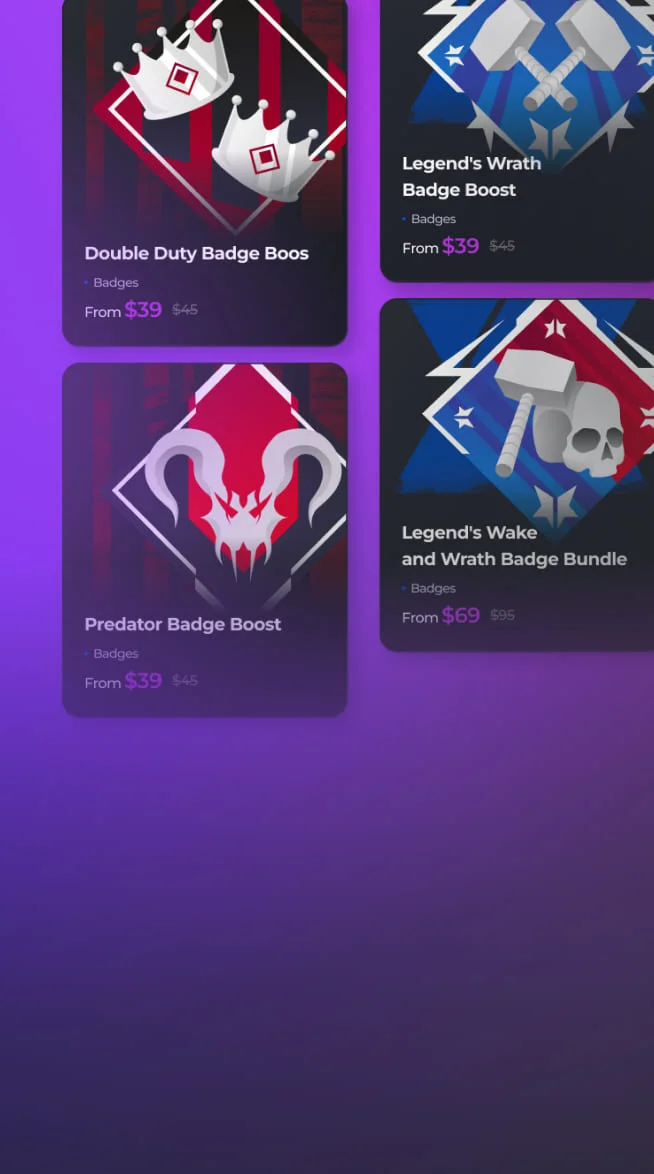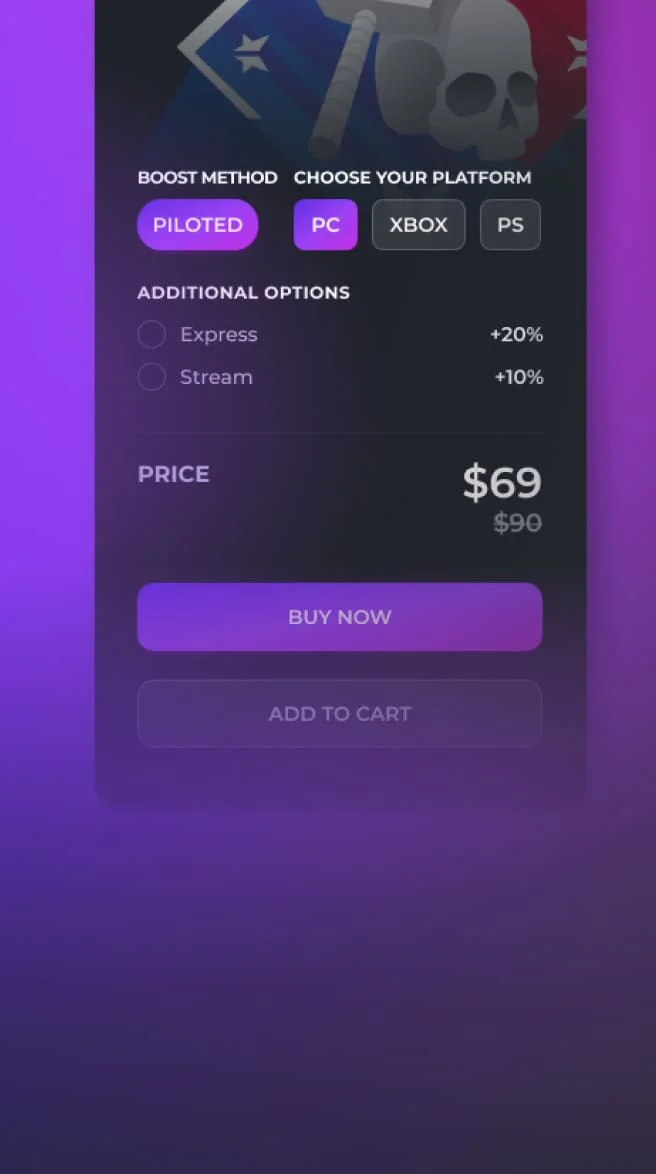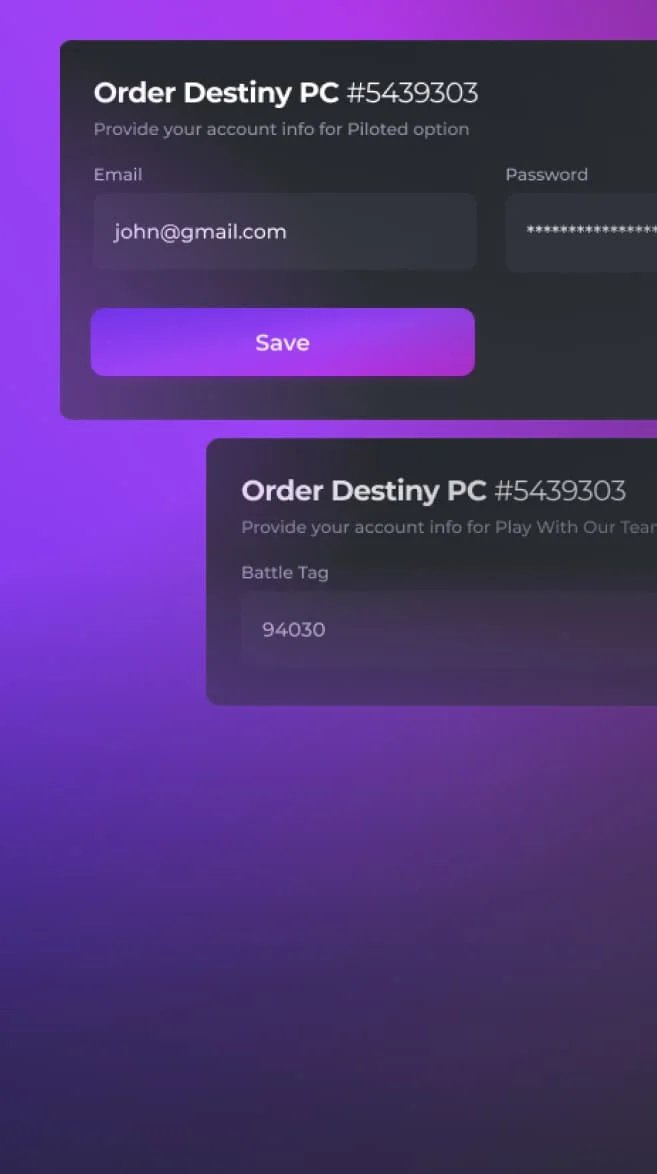PoE 2 Currency Boost
Get What You Need — Fast!
We typically reply in under 60 seconds
Custom requests, special deals, or just lost? We're here to help — fast.

Simple order steps
Get Path of Exile 2 Currency Fast & Cheap in Patch 0.4
Path of Exile 2 introduces large and complex system of currency items, each with unique uses and strategic value. Whether you’re upgrading gear, modifying rare items, or crafting powerful builds, currency is essential for success in Path of Exile 2. LevelUpper can help you get all crucial currency in PoE 2 for optimizing your character and enhancing your experience.
Currency in Path of Exile 2
Currency in PoE 2 is far more than simple trade tools; they are the backbone of crafting, upgrading, and customizing gear.
Players use currency to enhance equipment, alter item modifiers, and even enable some of the most powerful and advanced build by doing saw. Each type of currency serves a specific function - from rerolling item modifiers to improving the quality of gear. Mastering how and when to use these items can mean the difference between a decent build and an extraordinary one.
In Path of Exile 2, crafting currency plays a central role in navigating the complex web of character development, supported by the expansive passive skill tree and intricate itemization mechanics. By understanding how different currencies function, players can make strategic decisions to maximize efficiency and power.
Path of Exile 2 Currency Items for Sale
Gold
Gold is a versatile resource in Path of Exile 2, used for purchasing vendor items, gambling for powerful gear, and respeccing nodes on the passive skill tree. While seemingly straightforward, its role expands significantly in later stages of the game, allowing for strategic optimization of builds.
- Used for vendor transactions, passive skill respecs, and gambling.
- Saves significant time by allowing players to experiment with different builds or acquire rare equipment more efficiently.
Exalted Orbs
Exalted orbs are a cornerstone of advanced crafting. They add a new modifier to rare items, making them invaluable for enhancing high-end gear. Players often trade them as a primary currency for high-value transactions.
- Adds a random modifier to rare items, up to their modifier cap.
- Critical for crafting top-tier equipment tailored to your build.
- Best used on high-potential rare items to create significant upgrades.
Chaos Orbs
Chaos orbs are a staple in the crafting system, allowing players to re-roll modifiers on rare items. They are also widely used as a trade currency within the player economy.
- Re-rolls modifiers on rare items, providing new random affixes.
- Essential for mid-to-late-game crafting to achieve optimal item stats.
- Offers flexibility for players seeking to improve gear without crafting from scratch.
Artificer’s Orb
This orb enables players to add sockets to weapons or armor, essential for equipping skill gems and runes. It is particularly valuable in the endgame, where maximizing socket count can significantly enhance a character’s performance.
- Adds a socket to gear, allowing for additional skill or support gems.
- Pairs well with Jeweller’s Orbs to fully optimize socket configurations.
Jeweller’s Orbs
Jeweller’s Orbs are vital for increasing the number of sockets on skill gems or equipment. They come in three variants: lesser, greater, and perfect, each with unique uses for socket enhancement.
- Lesser Jeweller’s Orb: Adds a socket to skill gems with two existing sockets.
- Greater Jeweller’s Orb: Adds a socket to skill gems with three existing sockets.
- Perfect Jeweller’s Orb: Maximizes socket count at five.
- Allows for tailored skill setups, creating synergy between active and support gems.
Divine Orbs
Divine orbs are essential for perfecting gear by rerolling the values of modifiers on rare or unique items. They are a valuable tool for optimizing powerful equipment.
- Changes the numerical values of existing modifiers on an item.
- Ideal for improving rare or unique items with suboptimal stats.
- Best saved for valuable equipment where small improvements make a big difference.
Regal Orbs
Regal orbs are used to elevate magic items to rare status, adding an additional modifier in the process. This makes them a key currency for crafting advanced gear.
- Upgrades magic items to rare items, retaining existing modifiers and adding one new modifier.
- Perfect for turning a strong magic item into a powerful rare piece.
- Often used in crafting strategies to build high-value gear from the ground up.
Vaal Orbs
Vaal orbs are a high-risk, high-reward currency that corrupts items unpredictably. While their outcomes can be incredibly powerful, they carry significant risks.
- Can add sockets, modifiers, or unique effects, but also risks bricking the item.
- Reserved for advanced crafting and endgame experimentation.
- Best used on items where a potential upgrade outweighs the risk of loss.
Mirror of Kalandra
The Mirror of Kalandra is the rarest and most valuable currency in Path of Exile 2. It allows players to create an exact duplicate of a non-unique item, preserving all its modifiers.
- Creates a perfect copy of any non-unique item.
- Used to replicate the best-crafted gear in the game.
- An iconic and aspirational item for players, symbolizing ultimate success in crafting.
Essences
Essences offer a reliable way to craft gear by guaranteeing specific modifiers during the crafting process. They are a flexible and powerful tool for building effective equipment.
- Upgrades normal items to magic or rare with guaranteed modifiers.
- Comes in various types, each focusing on a specific attribute or stat.
- Ideal for targeted crafting where precise modifiers are needed.
Catalysts
Catalysts improve the quality of jewelry, enhancing the magnitude of specific modifiers. They are particularly useful for fine-tuning high-end accessories.
- Increases quality on rings and amulets, boosting specific modifier types.
- Essential for maximizing the effectiveness of critical gear pieces.
- Often used in conjunction with advanced crafting currencies to create powerful items.
Omens
Omens offer unique control over crafting outcomes, guaranteeing specific results or altering the behavior of other currency items. They are typically acquired through endgame content.
- Provides specific crafting outcomes, such as locking modifiers.
- Consumed automatically when conditions are met.
- Best utilized in end-game high price crafting scenarios where every step is important and costly.
FAQs
What is the most valuable currency in Path of Exile 2?
The Mirror of Kalandra stands as the pinnacle of value due to its extreme rarity and ability to duplicate perfectly crafted items. For more commonly used currencies, exalted orbs and chaos orbs hold significant value in crafting and trading.
How do I farm currency in Path of Exile 2?
Currency farming involves defeating monsters, completing quests, and utilizing vendor recipes. Engaging in endgame activities like boss fights and map clearing can yield higher-tier currencies, including exalted and chaos orbs.
When should I use chaos orbs?
Chaos orbs are best used on rare items with decent base stats but poor modifiers. Avoid using them on gear essential to your build until you have duplicates or backups.
How does an artificer’s orb work?
Artificer’s Orbs add sockets to weapons or armor, making them invaluable for equipping additional skill gems or runes. They are best utilized in late-game crafting when optimizing gear.
Are divine orbs worth using early?
Divine orbs should generally be reserved for high-value rare or unique items with low modifier rolls. Using them early is often inefficient.
What are omens in Path of Exile 2?
Omens are specialized currency items exclusive to endgame content, allowing players to control crafting outcomes, such as locking specific prefixes or suffixes on items.
Can currency be traded with other players?
Yes, most Path of Exile 2 currencies can be traded within the player economy. Chaos orbs and exalted orbs are particularly popular for transactions.
How do I maximize socket configurations?
Use Artificer’s Orbs in conjunction with Greater Jeweller’s Orbs to add sockets. Plan configurations to align with your build’s skill gem requirements.
What is the risk with using Vaal Orbs?
Vaal Orbs corrupt items, leading to unpredictable results. While they can grant powerful modifiers, they also carry the risk of bricking the item.
Are exalted orbs easier to find in Path of Exile 2?
Exalted orbs are somewhat more accessible compared to the original game but remain highly valuable due to their use in crafting and trading.
 World of Warcraft
World of Warcraft  ARC Raiders
ARC Raiders  Marvel Rivals
Marvel Rivals  Path of Exile 2
Path of Exile 2  Path of Exile
Path of Exile  WoW: Mists of Pandaria
WoW: Mists of Pandaria  Fellowship
Fellowship  Destiny: Rising
Destiny: Rising  Elden Ring Nightreign
Elden Ring Nightreign  Destiny 2
Destiny 2  Apex Legends
Apex Legends  Diablo 4
Diablo 4  Call of Duty
Call of Duty  TFD
TFD  Monster Hunter Wilds
Monster Hunter Wilds  Last Epoch
Last Epoch  Season of Discovery
Season of Discovery  FFXIV
FFXIV  Dune: Awakening
Dune: Awakening 
















